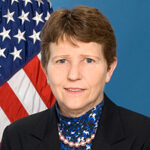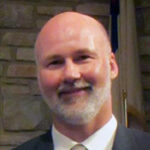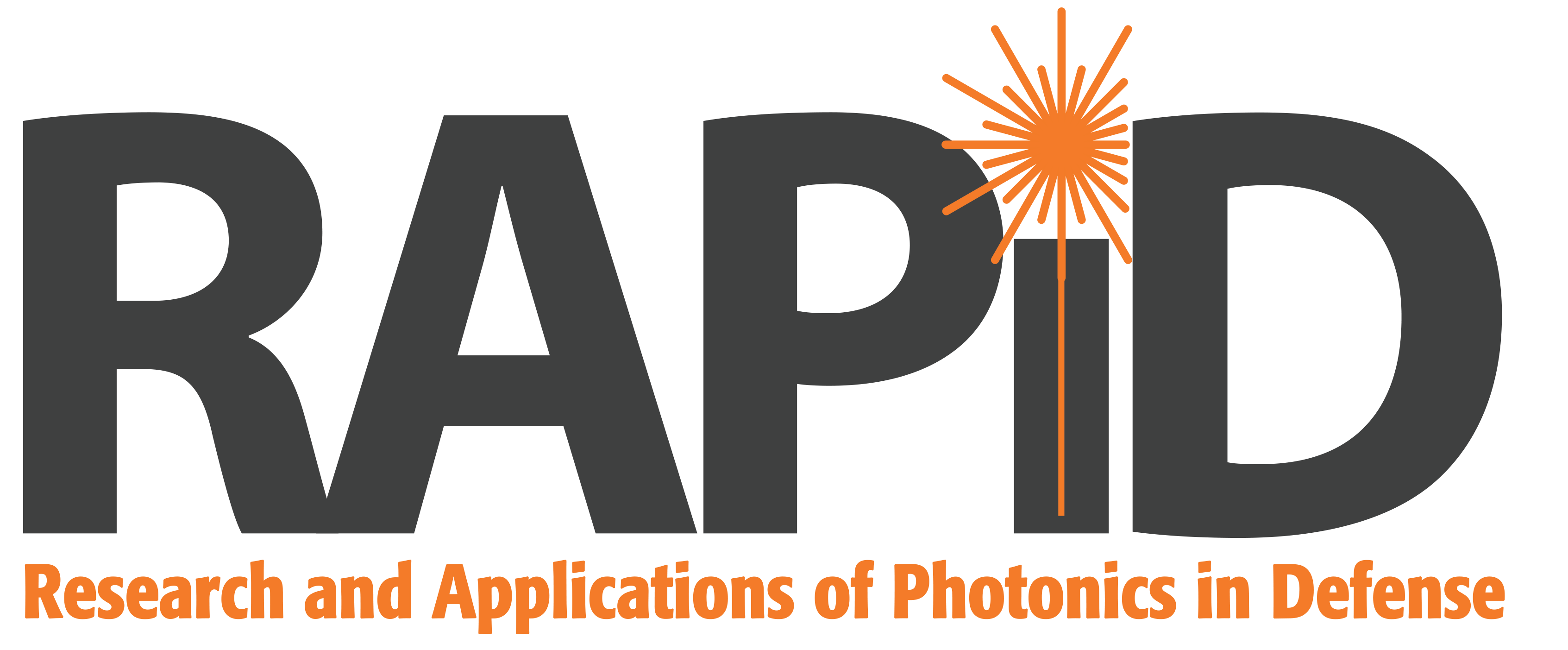Keynote Speaker & Plenary Speakers
Keynote Speaker

Dr. Eileen A. Bjorkman
Executive Director of the Air Force Test Center (AFTC) at Edwards Air Force Base, USA
Dr. Eileen A. Bjorkman Bio:
Dr. Eileen A. Bjorkman is the Executive Director of the Air Force Test Center (AFTC) at Edwards Air Force Base in California. Her role involves long- and short-range planning, policy development, determination of program and center goals, and overall management of the AFTC enterprise. She has a doctorate in Systems Engineering from The George Washington University, a bachelor’s degree in Computer Science from the University of Washington, and bachelor’s and master’s degrees in Aeronautical Engineering from Air Force Institute of Technology.
Plenary Speakers

Dr. David Lambert
Chief Scientist, Munitions Directorate, Air Force Research Laboratory, USA
Dr. David Lambert Bio:
Dr. David E. Lambert, a member of the scientific and professional cadre of senior executives, is the Chief Scientist, Munitions Directorate, Air Force Research Laboratory, Eglin Air Force Base, FL. He serves as the primary authority for the technical content of the directorate’s science and technology portfolio.
Dr. Lambert is a Fellow of AFRL and American Society of Mechanical Engineers and has served in various leader positions in technical communities of Hypervelocity Impact Society, International Ballistics Society and OUSD Joint Munitions Programs. His experimental research in detonation physics and related explosive-metal interactions has led to the transformation of air-launched conventional weapons. Dr. Lambert has co-authored more than 130 papers and proceedings in refereed journals and proceedings. He is currently on several academia and non-profit advisory boards as well as editorial review boards.

Prof. Miles Padgett
Professor, University of Glasgow, Scotland
Prof. Miles Padgett Bio:
Miles Padgett is a Royal Society Research Professor and also holds the Kelvin Chair of Natural Philosophy at the University of Glasgow in the UK.
His research team covers all things optical, from the basic ways in which light behaves as it pushes and twists the world around us, to the application of new optical techniques in imaging and sensing. They are currently using the classical and quantum properties of light to explore: the laws of quantum physics in accelerating frames, microscopes that see through noise, shaped light that overcomes diffraction-limited resolution and endoscopes the width of a human hair.
He is a Fellow of the Royal Society (the UK’s national academy), in addition to subject specialist societies such as Optical and SPIE. He has won various national and international prizes including, in 2019, the Rumford Medal of the Royal Society and in 2021 the Quantum Electronics and Optics Prize of the European Physical Society and the Quantum Electronics Award from IEEE.
Miles is currently the Principal Investigator of QuantIC, the UK’s Centre of excellence for research, development and innovation in quantum enhanced imaging, bringing together eight Universities with more than 40 industry partners.
Miles Padgett OBE FRS FRSE
Royal Society Research Professor and
Kelvin Chair of Natural Philosophy
University of Glasgow
Glasgow
Scotland
G12 8QQ
The University of Glasgow, charity number SC004401
Group Web Site: http://www.gla.ac.uk/schools/physics/research/groups/optics/
QuantIC: https://quantic.ac.uk/preview/
Lab for Academic Culture: https://www.gla.ac.uk/myglasgow/ris/researchculture/labforacademicculture/
Google Scholar: http://scholar.google.co.uk/citations?user=1OXAatkAAAAJ
ORCID: https://orcid.org/0000-0001-6643-0618
Twitter: @MilesPadgett

Dr. Leslie Blaha
Deputy Chief Scientist, Air Force Office of Scientific Research, USA
Dr. Leslie M. Blaha Bio:
Dr. Leslie M. Blaha is the Deputy Chief Scientist, Air Force Office of Scientific Research, Arlington, VA. Dr. Blaha is the deputy science and technology adviser to the AFOSR Director and Chief Scientist in matters of formulation, planning, managing and integration of all Air Force basic research programs, with an emphasis on the Air Force Research Laboratory’s intramural programs. The office has a staff of over 200 personnel assigned and an annual working budget $500 million that support more than 5,000 worldwide basic research projects critical to the defense of the U.S. The office selects, sponsors, and manages basic science and engineering relevant to Air and Space Force needs in science and technology, and is the Air Force Research Laboratories single manager for the all Air and Space Force basic research programs.
Dr. Blaha began her career with the Air Force in 2010 in the Battlespace Visualization Branch, Warfighter Interfaces Division, Human Effectiveness (now Airman Systems) Directorate, Wright-Patterson Air Force Base Ohio. Dr. Blaha has been Principal Investigator or Co-Investigator on over $11 million in sponsored basic and fundamental applied research emphasizing cognitive modeling for human-machine teaming in adaptive training, visual analytics, and decision-making systems to pioneer national security and defense mission future capabilities. She has worked in the areas of human-machine mutual understanding, interactive machine learning, interactive streaming analytics for intelligence analysis, cybersecurity and insider threat, social network analysis, aircraft integrity analysis, and real-time operator state assessment. Passionate about mentoring, she has mentored over 30 trainees, from high school to postdoctoral research level. Dr. Blaha was awarded an Early Career Impact Award from the Federation of Associations for Brain and Behavioral Sciences in 2018. She serves as the Secretary/Treasurer of the Society for Mathematical Psychology and is a co-founder of the Women of Mathematical Psychology. She has authored or co-authored more than 40 peer-reviewed publications and edited a two-volume book (h-index 11; i10-index 14).
Prior to assuming her current position, Dr. Blaha served as the acting Training Core Technical Competency Lead, in addition to serving as principal investigator for Human and Machine Co-Learning, Airman Systems Directorate, 711th Human Performance Wing, Air Force Research Laboratory. Embedded at Carnegie Mellon University (CMU), she serves as the lead for the CMU Operating Location, fostering university collaborations in the areas of Cognitive Modeling for Human-Autonomy Teaming. In addition, Dr. Blaha serves as the Air Force Office of Scientific Research’s senior subject matter expert and independent researcher in the development theory-driven models and methodologies, together with new methods for test and evaluation of models, for human-autonomy teaming across all missions of the Department of the Air Force.

Dr. Dev Shenoy
Principal Director for Microelectronics, Office of the Under Secretary of Defense for Research and Engineering, OUSD(R&E), USA
Dr. Dev Shenoy Bio:
Dr. Dev Shenoy joined the Office of the Under Secretary of Defense for Research and Engineering, OUSD(R&E), as the Principal Director for Microelectronics in July 2021. In this role, Dr. Shenoy is responsible for leading the Department of Defense’s research and engineering efforts in Microelectronics.
Prior to joining OUSD(R&E), Dr. Shenoy served as the Director of Microelectronics Innovation and as Director of Advanced Technologies at the University of Southern California’s Information Sciences Institute.
Prior to joining USC/ISI, Dr. Shenoy served as Chief Engineer in the Advanced Manufacturing Office at the Department of Energy (DOE) HQ. In that role, he co-authored DOE’s 2015 QTR (Quadrennial Technology Review) that served as a blueprint for DOE’s energy technology investments. Among other initiatives, Dr. Shenoy proposed and led a “Big Idea” for U.S. national security and economic competitiveness within the Office of EERE (Energy Efficiency and Renewable Energy) on “Beyond Moore Computing” with participation from eight DOE National Labs.
Prior to joining DOE, Dr. Shenoy served as a Senior Advisor at the Manufacturing and Industrial Base Policy (MIBP) Office within the Office of the Secretary of Defense (OSD) as a detailee from the Army Night Vision and Sensors Directorate (NVESD) at Fort Belvoir. In that role, he co-led a Telecom initiative with the White House Office of Science and Technology Policy (OSTP) to explore U.S. opportunities in Optical networks. While at OSD/MIBP, Dr. Shenoy proposed and helped develop a public-private partnership in Photonics that led to the creation of the AIM Photonics Institute.
Prior to serving at OSD/MIBP, Dev was a Program Manager at DARPA, (Defense Advanced Research Projects Agency), where he developed and managed cutting-edge technology programs in the areas of Spintronics, such as the STT-RAM (Spin Torque Transfer Random Access Memory) program, a technology that was successfully transitioned and commercialized; Dr. Shenoy also developed and led programs in Photonics and MEMS for defense and commercial applications.
Dr. Shenoy has a Ph.D. in Physics from the prestigious Indian Institute of Science in Bangalore, India, and NSF postdoctoral experience from Case Western Reserve University in Cleveland, Ohio.
Women in Photonics/Women in Science and Engineering

Dr. Janet Wolfson
Director, Science, Technology, and Engineering Directorate (SQT), USA
Dr. Janet Wolfson Bio:
Dr. Janet Wolfson is the Director of Science, Technology and Engineering for the Office of the Assistant Secretary of the Air Force for Space Acquisition and Integration (SAF/SQ) at the Pentagon. She oversees and guides the execution of space related research at the Air Force Research Laboratory. She also sits on multiple committees focused on Science and Technology across the Department of the Air Force and the Office of the Secretary of Defense.
Previously, Dr. Janet Wolfson served as the Director of Staff for SAF/SQ. In this position, she collaborated and coordinated across the Department, ensuring all opportunities and efficiencies while preserving the authority and autonomy of SAF/SQ. She was the Space Division Chief in the Office of the Assistant Secretary of the Air Force for Acquisition, Special Projects. There she led a team managing Special Access Programs for Space efforts involving emerging technologies. During her time at the Air Force Research Laboratory her expertise spanned from managing a highly classified science and technology research portfolio to addressing Air Combat Command’s critical gaps in Air Dominance and Global Precision Attack. She is a pioneer in fuzing technology and developed the first major change to fuzing since World War II. She also built diverse teams spanning the Department of Defense and the Department of Energy to optimize her research programs.
Before entering public service Dr. Wolfson worked as a structural engineer for Applied Research Associates and the Thornton-Tomasetti Group. She practiced building design, forensic engineering, and blast-resistant design. She is a registered professional engineer in California and was a member of the response team for the World Trade Center Disaster.
Dr. Wolfson has published over 100 publications and proceedings in national and international journals and forums. She has been an invited speaker to various events.
STEM

Dr. George Fischer
Senior Science Technical Manager for Manufacturability, Nubis Communications, USA
Dr. George Fischer Bio:
Dr. George Fischer joined Nubis-Communications shortly after RAPID 2022 and is enjoying the fast-paced environment there as a manufacturability expert on their micro optics team. Every day at Nubis, he feels like an old dog learning new tricks. For a dozen years before the big job switch, he was an Army civilian at Picatinny Arsenal. He graduated from MIT in 1986 and from the University of Rochester in 1996. He was honored and congratulated in a New Jersey State Senate resolution for his STEM efforts. He has been active in science outreach for over thirty-five years. The STEM session was full when he presented (for his second year) at RAPID 2022, but a free lunch was included, so it is difficult to draw any conclusions on his speaking abilities.
Luncheon on Monday, 11 September
12:00 pm-1:15 pm CDT
*Pre-registration Required
Luncheon on Tuesday, 12 September
12:15 pm-1:30 pm CDT
*Pre-registration Required
Workforce Development

Dr. Nibir Dhar
Professor, Virginia Commonwealth University, USA
Dr. Nibir Dhar Bio:
Dr. Dhar is a fellow of SPIE and OSA (OPTICA) and a senior member of IEEE. Dr. Dhar received a Ph.D. in Electrical & Computer Engineering (ECE) from the University of Maryland at College Park with a major in Microelectronics and a minor in Electro-physics. In 2021, he became a professor at the Electrical and Computer Engineering Department at VCU. Dr. Dhar is currently the director of the Virginia Microelectronics Center at VCU. After joining VCU, he initiated several STEM education and workforce programs such as ASPIRE, A-STAR, and VA-STAR. He is launching a Convergence Lab Initiative center at VCU to drive innovation in EO/IR, RF, and Edge/Security technologies. Dr. Dhar is also a Commonwealth Cyber Initiative eminent scholar.
He served for 33 years in the Department of Defense. He led the EO/IR imaging technology for the US Armed Forces. He joined Night Vision and Electronic Sensors Directorate (NVESD) in 2014 as the Chief Scientist. At NVESD (Now C5ISR Center RTI), he was involved with the R&D programs in materials, detectors, FPAs, optics, image processing, and EO/IR systems in the imaging science and technology area. During that time, he founded a workforce development effort called Innovative Discovery Science Platform (iDISPLA) that focused on STEM education and the talent pipeline for the Department of Defense. He served as the program manager in the Microsystems Technology Office at DARPA. At DARPA, he developed various technologies and transitioned several products to the US military and industry. Before DARPA, he was the branch chief and team lead in EO/IR technology at the Army Research Laboratory.
He received numerous R&D achievement awards, technology transition awards, and industry awards for his technical contributions in the field of Infrared science. He received the DARPA technology transition award (Results Matter) in 2013, the Office of the Secretary of Defense Medal for Exceptional Public Service in 2014, the Henry Levinstein lifetime achievement Award in 2016, and a Technical excellence award in 2018. He is a member of the Optical Society of America, IEEE, Eta Kappa Nu IEEE honor society, and member of Golden Key honor society. He served as an adjunct professor at George Mason University and the University of Illinois at Chicago and mentored twelve Ph.D. students in various subjects through these activities. He has published numerous technical papers and book chapters.
